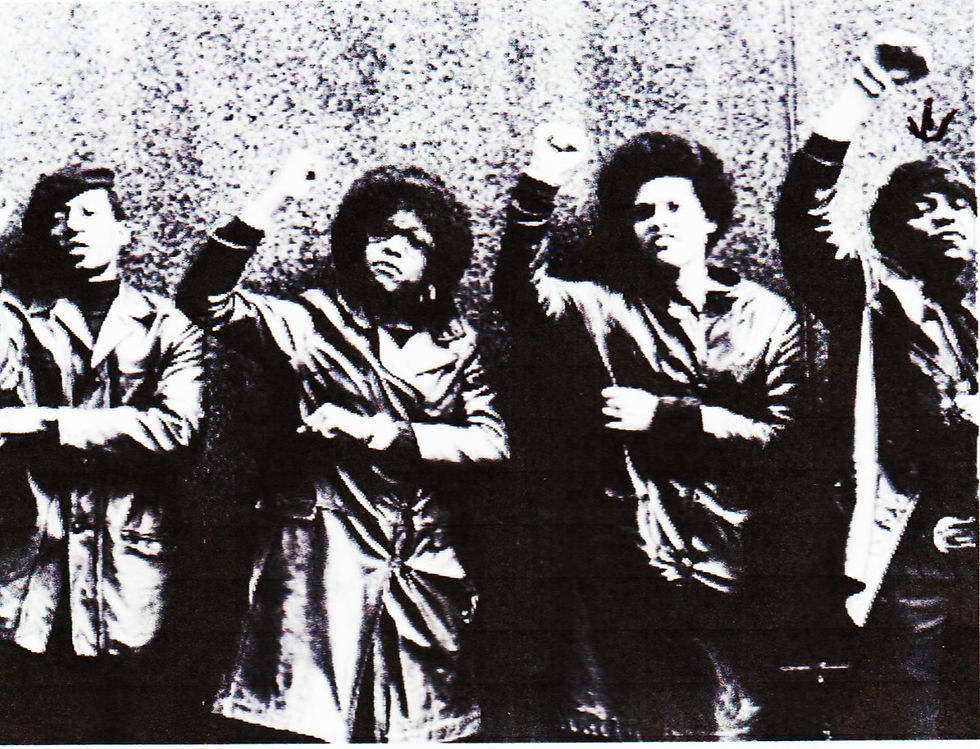Profound Blackness
- VL CLARK
- Jun 4, 2020
- 4 min read
Updated: Feb 4, 2024

"The world cannot be changed unless we change the way of our thinking…….Einstein.
Even before I knew the power of words, I wrote about injustice. Some folk felt that as the first black student from Denver to receive an award from the National Scholastic Press Association, I should be gratefully quiet. I wasn't. Every essay or poem I wrote was about living in Five Points, being colored, and the lack of resources for Negro citizens in America. I was offered an internship at the Denver Post and a journalism scholarship to CU but turned both down. The truth was that I missed California. We'd moved from Denver to Los Angeles when I was in elementary school and when Mom decided on a brief separation from Dad, we went to San Francisco. When we moved back to Denver after my twelfth birthday, the dream of returning stayed on my mind. Most of the schools I applied to were in California.
When I received a scholarship to Cal in Berkeley, I was elated. My uncle lived in San Francisco, and he told the family he'd watch over me. My goal was to graduate with a degree in sociology, psychology, or business and then attend law school. At that time, I wanted to be a Civil Rights Attorney. But the Watts Riots derailed my dream. The day I arrived in LA for a visit with relatives before going to school was the first day of the civil unrest. I went to school in August, but the riots changed me immensely. I arrived in Berkeley shell-shocked by the fires, deaths, and most importantly, rejection of Watts residents.
I didn't understand why they distrusted me. I had to learn that South Central LA in the '50s comprised migrates from primarily Southern states. To them, the only Negroes that talked like me were the social workers and authority figures that only came to their homes to "check on them" for County assistance or criminal behaviors. I had forgotten when I went to elementary school off Central and 54th Street how I changed my way of speaking to fit in with the other kids in the class. It was my first experience of being ridiculed because of my accent and academic achievements. I knew then, as I know now, that activism is in my spirit. It is my spiritual calling because, throughout the rejection, I thought about how I would approach folk when I returned to rebuild their communities in the summer instead of going back to Denver. My first year at Cal-Berkeley was another awakening of sorts. The months I'd spent in LA were eye-opening, and I wanted to continue to fight for causes. The Free Speech Movement on campus included a bevy of groups rallying for change.
Consequently, instead of going to class, I joined any protest, sit-in, etc., and began to write radically about race and sexism. Eventually, I dropped out and returned home to my Christian, Conservative, Republican family. I was no longer quiet, sweet, or colored. Now Black, proud, and openly gay, I was an embarrassment to some. It was so oppressive I eventually returned to the Bay Area, vowing to never again live in Denver.
In the beginning, California life was about activism and getting to know me. Astrology and numerology became an intricate part of my world during this period. Tarot cards taught me the plus/minus, yin/yang of all life. I met Angela Davis at a San Diego rally for voting rights just before joining the Peace Corps. Right away, she impacted my life with her powerful spirit, and I was intrigued she was also born under the sign of Aquarius. I do not believe in coincidence, but I believe in the universal alignment of who we meet and when. On one of the scariest days of my life, in 1967, when the LAPD shot up our office, she encouraged us to continue to fight the injustice by increasing our recruitment of Blacks in all cities for "power for the people ."The Black Panther Party for Political Action became my focus, my life, because of late-night discussions with her and other sister comrades in the cramped apartment off of Normandie. She was passionate about where my generation could take the world. She became my mentor, and her tools of organizing plain folk have proved invaluable to my activism.
In 2020, I continue to fight against the needless and senseless deaths of men and women by police officers in American cities. I continue to organize as many as I did as a member of the Black Panther organization 50 years ago. It is a must that I try to turn as many negatives into positives for the sake of my grandsons and other women's grandsons who will most certainly need our support to survive this country's view of black men. Black LGBTQ and same-gender-loving (SGL) also face harsh realities directly connected with living at the intersection of our racial and LGBTQ identities. Heightened health disparities, the disproportionate impact of the school-to-prison pipeline, and the lack of employment opportunities are just a few of the realities that define many of their lived experiences. A movement has commenced in the aftermath of the murders of Elijah McClain, Trayvon Martin, Michael Brown, Eric Garner, George Floyd, David McAtee, Ahmaud Aubrey, Sandra Bland, Breonna Taylor, and other victims of color who law enforcement officers murdered. It is a prime opportunity to mobilize all lives in communities that have been virtually absent from the national dialogue. As one of the eldest members of Black Lives Matter, I am excited about current worldwide protests in response to the many injustices in modern American society.












































Comments